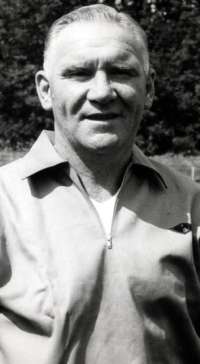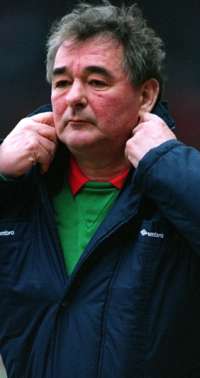Bill Nicholson and Brian Clough were vastly different characters, yet they were both products of their times, and are inextricably identified with football’s yesteryear. Nicholson was the old-fashioned one-club man – an association stretching to sixty years – and continued to live in a small terraced house in the centre of the Tottenham community for the duration of his life; Clough took two unfashionable provincial clubs to glories previously beyond their wildest dreams. Neither is likely to find a compare in the modern game. One wonders, too, whether Clough’s approach to man-management could have worked in this era of agents, inflated salaries and inflated egos to match.
I had the privilege of being at
No doubt the types of scenes I witnessed on Saturday were replicated at Forest and
But beyond each club, respects have been paid to these legendary figures across the land. Undoubtedly, because these were both characters – albeit as different as Chalk and Cheese – appreciated across the land. Clough, in particular, was loved as much for his ability to come up with the brilliant one-liner as for his undoubted achievements in managing football teams. But they were mourned not just as individuals, but for what they represented.
Indeed, this has been an opportunity for sentimentality, a chance to remember a period that so many see as a golden age of football, and to mourn not just the passing of two former managers, but also the passing away of an era.
I’ve always suggested that the magic of those olden days has increased as they have drifted further away. Let no-one tell you that those days were perfect. There are footballers who played in the past who must scratch around to make a pitiful living today. There were scars upon the game left by hooliganism in the 70’s. And for all the romance of terraces (though I would stand if I could) they could be unpleasant places on occasions.
But whilst that may be true, more pertinent is the general lack of a feel good factor within football today. The era of the Premiership has brought a higher standard of player, thanks to the influx of top class foreigners, and has brought modern, clean stadiums and games beamed into houses across the land. But it has also lead to the dominance of money, to a predictable league without soul, vast wages and vast expenses which have been passed onto fans. 
The Arsenal team which currently dominates the domestic game is perhaps the most beautiful, cultured and vibrant team ever produced in this country. But, along with Manchester United and Chelsea, they operate a cartel at the top of the league. There is an impenetrable league of three from which the Champions will emerge.
Any future challenge, if it ever materialises, will come from one of the other wealthy clubs currently just below that elite. It will not come, as Brian Clough’s teams did, from a previously unheralded team who barely flicker on the national consciousness just now. There is no story in football. A book can be filled with the most beautiful prose, but without a story to sustain it, it will not make for a classic bestseller.
It wouldn’t be so bad but for the cost. It currently costs £40 to watch
Often, for what? Inherent in football is the possibility of disappointment. Invariably, to sit in a meek atmosphere where you can here the shouts of the participants. Frequently to leave unfulfilled, after another uninspired afternoon in a new, soulless out of town stadium bedecked in corporate logos.
Where the players can act without grace or dignity, and form an unseemly scrum around the referee after every decision - as the players of the two biggest clubs in the land, Manchester United and Arsenal, did yet again in Sunday. Players who then earn vastly inflated sums of money and scream their own self-importance from the tabloid press that fauns to them, but who are the icons of an increasingly footloose industry, where players and managers are gone in the blink of an eye.
As a culture of cynicism has built up amongst careworn supporters, so has a yearning for a mythical by-gone golden age. Of course, that isn’t to suggest that dedicated football fans are on the verge of giving up on the game, and going somewhere else. We are wedded to our club, and the game is a massive part of all our lives.
But after the boom of the late nineties, which masked the unhealthy cancer eating away at footballs roots, reality is beginning to kick in. As a report in The Observer newspaper showed on Sunday, attendances are beginning to slide. Not even Arsenal have sold out completely, including the away end, this season. Travelling fans in particular have found other things to do with their Saturday afternoons, or Sunday evenings, or whichever other time TV has deigned that the game should be played.
Money, dissatisfaction at the coldness of the authorities, and the frustration at the attractive but insubstantial fare on offer, have combined to place fans close to the brink. The deaths of two venerable old figures within the game have brought that starkly into focus. Amongst the reminiscences of the radio phone-ins up and down the country is a stark truth: football is lost, dislocated from its truth. We’ll still be there, but with how many others?
